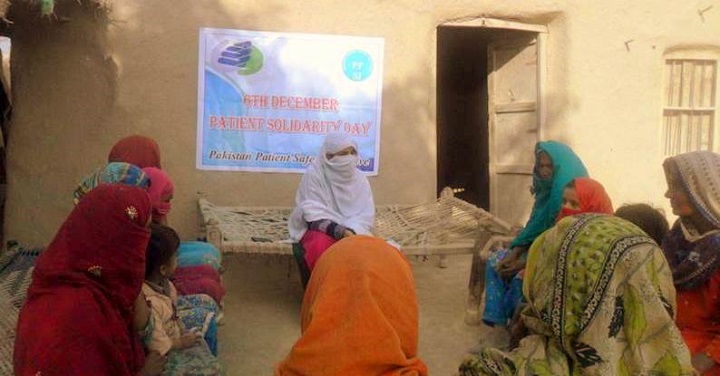Every person should have access to the healthcare they need
Background
A key principle of patient-centred healthcare is access to healthcare, so universal health coverage is a central goal that IAPO is working to achieve. According to IAPO’s Declaration on Patient-Centred Healthcare, patients must have access to safe and high quality services warranted by their condition, and tailored to their needs.
The 6th Global Patients Congress explored how a patient-centred approach can break down the barriers to universal health coverage and began work on a set of key principles from a patient perspective. We believe these principles need to be the core components of health systems and we call on all governments and stakeholders to support and put into practice these principles to ensure affordable, high quality equitable access for all their citizens.
IAPO welcomes the political commitment of governments to universal health coverage however more needs to be done to follow-through on this commitment, and this need is growing more pressing as we consider post-2015 development goals.
IAPO principles on universal health coverage
We know from our member organizations that many experience a lack of commitment and inadequate funding for universal health coverage in their home countries. Members report that healthcare is often unaffordable for patients and their families and there are disparities in access to healthcare.
IAPO is working with its members and partners to develop principles of universal health coverage from a patient perspective. We believe these principles need to be the core components of health systems and we call on all governments and delegates attending the WHO Regional Committee to consider these principles in the context of the agenda items under consideration and the importance of these fundamental principles to ensure affordable, high quality and equitable access for all their citizens.
The principles governing universal access to health coverage are based on:
- Accessibility
- Patient-centredness and equity
- Choice and empowerment
- Quality
- Partnership and collaboration
- Sustainability and value
- Accountability and transparency
Read the accompanying report here
Policy briefing 2017
Patients and patient groups recognise that achieving universal health coverage is a necessary condition to build sustainable and prosperous societies. To achieve this, universal health coverage must be patient centric, and patients’ organizations and groups are in a key position to suggest what patient centricity entails in this regard.
To make their voice heard by decision-makers, patients must be empowered and ready to contribute as equal partners to all levels and stages of decision-making. Equally, the other stakeholders must be ready to work in partnership and create an enabling environment for patients to play a central role.
Read the policy briefing here.
Other resources
What is universal health coverage?Read the Information Paper. This paper aims to provide an introduction to universal health coverage (UHC), how it is currently defined and measured, and why it is considered so important.
The Information Paper is also available in Spanish. Please click here to access the Spanish version.
What does universal health coverage mean to IAPO members around the world?Read the Member Consultation Report. This consultation was carried out in 2013 in advance of the 6th IAPO Global Patients Congress in 2014. The paper describes members' understanding of access to healthcare and universal health coverage, and supported the development of the Congress programme where universal health coverage from a patients' point of view was discussed.
Are you interested in examples of progress towards universal health coverage?Read examples of progress from around the world. This paper highlights examples from six countries; Mexico, Rwanda, Japan, Ghana, Thailand, and Chile, that have developed innovative strategies to expand healthcare coverage across the population. It includes examples of how the healthcare systems are financed.
The paper is also available in Spanish. Please click here to access the Spanish version.

